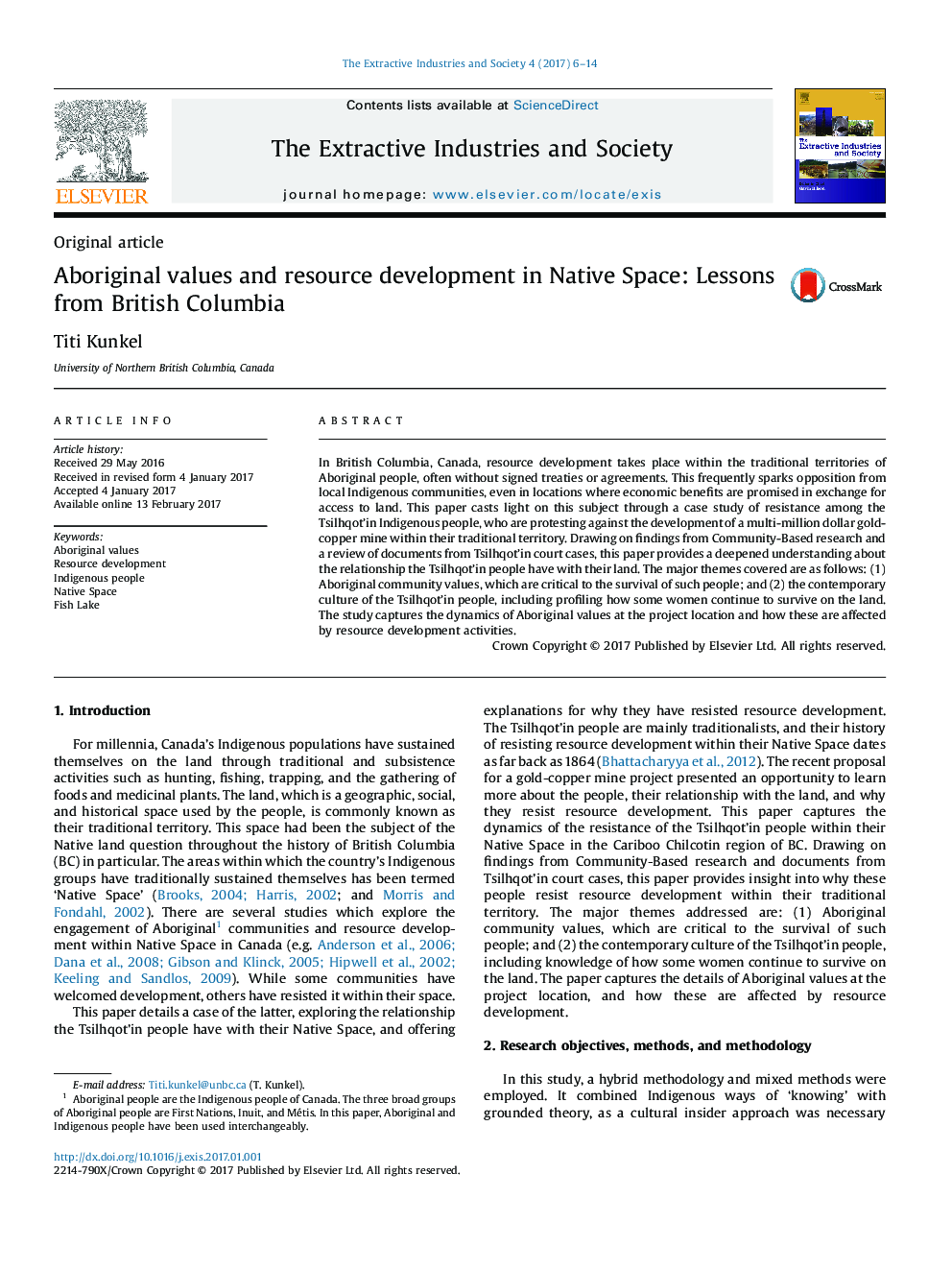| Article ID | Journal | Published Year | Pages | File Type |
|---|---|---|---|---|
| 5114443 | The Extractive Industries and Society | 2017 | 9 Pages |
Abstract
In British Columbia, Canada, resource development takes place within the traditional territories of Aboriginal people, often without signed treaties or agreements. This frequently sparks opposition from local Indigenous communities, even in locations where economic benefits are promised in exchange for access to land. This paper casts light on this subject through a case study of resistance among the Tsilhqot'in Indigenous people, who are protesting against the development of a multi-million dollar gold-copper mine within their traditional territory. Drawing on findings from Community-Based research and a review of documents from Tsilhqot'in court cases, this paper provides a deepened understanding about the relationship the Tsilhqot'in people have with their land. The major themes covered are as follows: (1) Aboriginal community values, which are critical to the survival of such people; and (2) the contemporary culture of the Tsilhqot'in people, including profiling how some women continue to survive on the land. The study captures the dynamics of Aboriginal values at the project location and how these are affected by resource development activities.
Related Topics
Life Sciences
Environmental Science
Management, Monitoring, Policy and Law
Authors
Titi Kunkel,
